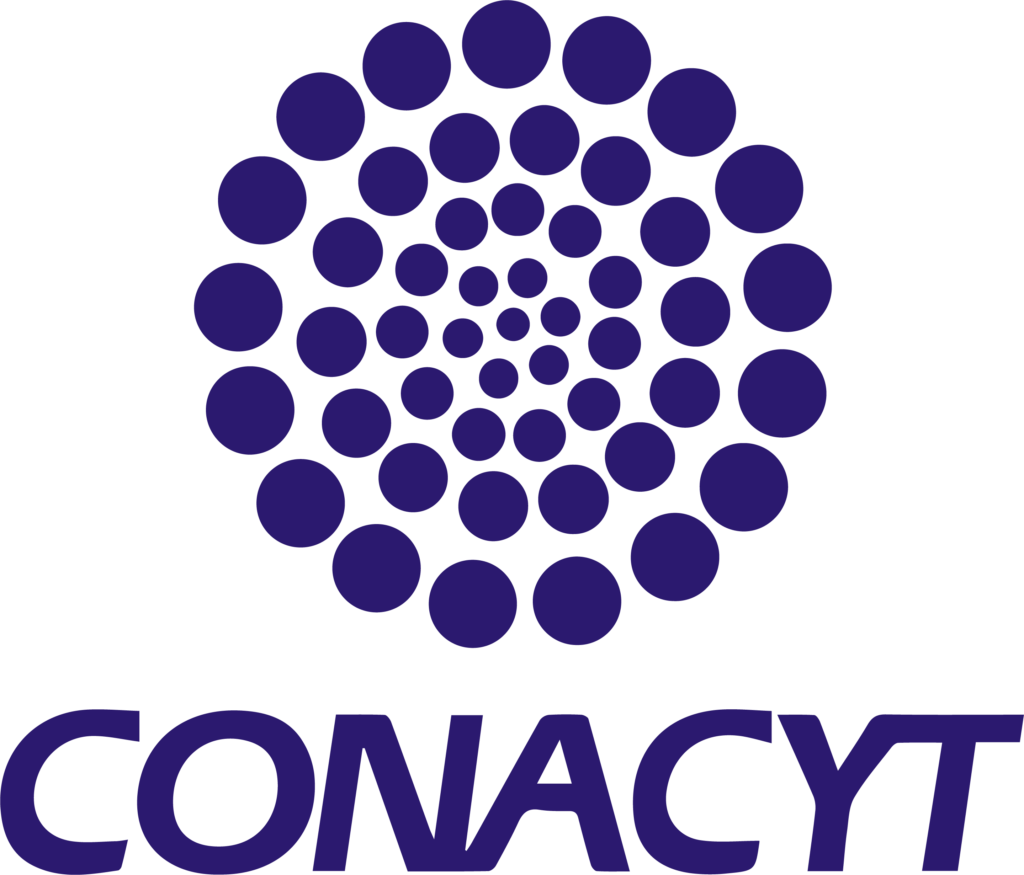Featured
Latin American Psychological Science: Will the Global North Make Room?

Image above: Basilica de Guadalupe, Mexico City, Mexico. Between 2012 and 2020, Mexico added 14 new masters programs in psychology, and doctoral programs grew from 298 to 368.
More than 80% of the world’s population lives in countries other than the United States, Canada, and Europe, which dominate psychological science nonetheless. The Global Spotlight series is a small step toward closing that gap. Authors across the globe—including in regions that have long been underrepresented in the research community—share unique and personal perspectives on the issues affecting their work and careers. In providing these on-the-ground narratives, we hope to illuminate concrete challenges and opportunities alike involving this truly global science.
The ethos of Latin American psychological research • Barriers and challenges • Toward a more global psychological science
The open scholarship movement reflects the idea that “scientific knowledge of all kinds should be openly accessible, transparent, rigorous, reproducible, replicable, and inclusive” (Parsons et al., 2022, p. 11). A relatively new aspect of this movement is the facilitation of large-scale collaborations or big-team science endeavors in which scientists from widely dispersed institutions around the globe pool their resources and expertise to complete large-scale open projects that would be otherwise unrealizable (Forscher et al., 2022). The emergence of such initiatives reflects the need for psychological science to be more open, generalizable, and global (IJzerman et al., 2021) and has the potential to spur scientific progress, connect scientific communities and subfields, sponsor multidisciplinarity, promote skills exchanges, and overcome many caveats of small-team science projects (e.g., replicability, generalizability, external validity).
Big-team science also represents an opportunity to realize the goals of open scholarship that have been the hardest to achieve: diversity, equity, inclusion, accessibility, and social justice. But making psychological science more equitable, diverse, and global comes with several challenges, many of which cannot be overcome without a more in-depth understanding of the nature of psychological research and the particular constraints and opportunities in low- and middle-income countries and the Global South more broadly. In this piece, we focus on psychological research in Latin America specifically, contextualizing the research ethos in this highly diverse region of more than 30 countries, outlining factors that influence scientific advancements in the region, and identifying potential avenues for reframing/repositioning research conducted in Latin America, especially by Latin American researchers, in the global scientific landscape.
The ethos of Latin American psychological research
The social production of scientific knowledge can be understood as the mechanisms through which epistemic–social institutions impact scientific endeavors and the academic landscape. From recruitment to training, from ethics to priority assessment, such mechanisms drive “what questions we, as scientists, do and do not ask, the studies we do and do not conduct, and the ways in which we analyze and interpret data, consider their likely flaws, and disseminate results” (Krieger, 2001 p. 698).

Historically, a significant portion of Latin American work in psychology and social science has been rooted in liberation theory and the dismantling of unjust social, political, and economic structures that pervade the region. The movement was driven, in part, by researchers like Paulo Freire in Brazil and Ignacio Martín-Baró in El Salvador. Freire’s seminal work, Pedagogy of the Oppressed (Freire, 1970/2000), promoted education as a mechanism for liberation, calling for a shift toward a problem-posing model in academia in which teaching emphasizes critical thinking, leading to liberation. His proposed educational model contends that in traditional approaches to education, the voice of the educator or investigator could serve to perpetuate oppressive systems and sociopolitical structures. These ideas became popular in the region, inspiring later scholars like Martín-Baró to examine and address social problems and promote social justice in their own communities (Martin-Baró, 1994; Montero, 2018). Martín-Baró appeared particularly troubled by claims of political neutrality in academia, arguing instead for considerations of the specific historical, cultural, and political context that varies across populations and nations (Martin-Baró, 1986). The perspectives promoted by these scholars would go on to challenge their respective governments and influence generations of academics, educators, pedagogists, and advocates in Latin America. But not without a cost. Freire was imprisoned and exiled for his work. Martín-Baró was marched into the courtyard of the Universidad Centroamericana José Simeón Cañas and murdered by the Salvadoran army’s elite counter-insurgency unit, the Atlácatl Battalion, on November 16, 1989. The consequences for academic work and civic action that strayed too far from established political structure were severe. A lasting legacy is that researchers in Latin America are wary of the relationships between the state apparatus, oppression, and academic directives.

In addition to local social concerns, Latin American psychology has also been shaped by global academic inequalities. Discontent with the state of psychology in the mid-1970s, particularly the Global North’s tendency to overvalue research centered on its own countries, drove academics to reexamine how the field addressed cultural and contextual differences (Montero, 1994, 2018). Community psychology based on principles of social justice (Sánchez-Vidal, 1991), for example, represented a new paradigm that incorporated the sociocultural, economic, political, environmental, and global factors underlying the human experience (Montero, 2018). Born out of the 1965 Conference on the Education of Psychologists for Community Mental Health, community researchers proposed that psychology in Latin America should strive to work for, with, and in these communities to solve social problems (Montero, 1994).
A strong desire to address local issues and the need for a uniquely Latin American psychology inspired the creation of a new academic discourse in the region. From their inception, both the social psychology of liberation and community psychology sought to create Latin American science by and for Latin Americans. In sum, the need to actively address local social issues has shaped much of Latin American social sciences—and psychology in particular—during the past decades, and as a consequence, Latin American research is mostly local focused on addressing pressing regional and justice-oriented issues.
Barriers and challenges
Internal challenges: political and investment instability, gender and racial inequalities
Psychological research in Latin America is considerably underfunded compared with regions in the Global North, and political and economic fluctuations can heavily influence financial support, threatening long-term funding schemes and hindering researchers’ programmatic research. In 2018, Latin American countries spent an average of 0.4% of total GDP on scientific research, compared with 2–3% in high-income nations (UNESCO, 2021; Boroush & Guci, 2022). It is worth noting, however, that the amount of investment in research differs greatly between Latin American nations. For instance, in 2019, Brazil (1.21% of GDP) devoted more than twice as much funding to research as Cuba (0.55%) and four times as much as Mexico (0.28%) (UNESCO, 2022).
Although funding opportunities vary greatly in Latin America, the majority of research funding is typically distributed by central government agencies, such as federal councils or ministries of science and technology. To illustrate, Brazilian and Cuban government entities account for around half of total research funding in those countries (49.7% and 56.4% respectively), and Mexican funding agencies account for more than three-quarters (78.2%) of total research funding in the country (UNESCO, 2021). This high reliance on government research funding makes already-limited scientific budgets extremely vulnerable to political and economic instability.
Sudden, sometimes drastic, funding cuts can hamper the efforts of long-term research projects and academic institutions. For instance, between 2015 and 2017, the Brazilian government reduced federal funding for research by 44%. These austerity measures remained in effect until 2022 and were eased only after significant political pressure. Unfortunately, Brazil represents the rule rather than the exception in Latin America. Mexico enacted similar austerity reforms, reducing research funding from 0.43% of GDP to 0.31% in just 3 years (2015 to 2018) (UNESCO, 2021, see also reports from the Mexican Science foundation, Consejo Nacional de Ciencia y Tecnología (or CONACyT, 2017). Similarly, the restoration of U.S. sanctions in 2017 stymied Cuba’s rising research investments, particularly in instructor salaries.

Compounding the problem is that many national academic systems in Latin America rely on short-term employment contracts, biased selection procedures, and misaligned incentives, hindering research quality and progress (Rahal et al 2023). To address these issues, it is imperative that governments create academic institutions and environments in which employment conditions, incentives, and routines prioritize good research practice by creating well-funded and stable academic employment allowing researchers to focus on their work and develop long-term projects and maintain a high level of research quality.
Internal politics and unequal power relationships within a nation can also influence national investment in research across Latin America. Mexico directs 62% of its funding to maintain the existing infrastructures and training programs of institutions located in Mexico City, leaving little for dispersal throughout the rest of the country. Cuba experiences a similar phenomenon. Nearly two thirds of its national science budget is diverted to research conducted in the capital city of Havana (Alpízar, 2019). In Brazil, because of its federal political structure, funding received by universities depends on the state in which they are located, as well as on federal programs, resulting in disproportionate funding. For instance, São Paulo, a high-resource state, has one of the best and most well-funded universities in the country, Universidade de São Paulo. Restricted access to funding, limited distribution of funds nationwide, and other bureaucratic issues further complicate the research landscape in Latin America (UNESCO, 2021).

Another critically important avenue of opportunity for improvement involves gender equality in science. Although the region has recently made important progress in gender equality in education (UNESCO, 2021), the leaky pipeline phenomenon is still a problem in Latin America, with women facing inequality in placement, pay, and advancement in their research careers. For example, women are overrepresented in lower-status and lower-paying positions at public research institutions in Mexico, while occupying only 37% of top-ranking research positions (Fabila-Castillo, 2019). Moreover, although there is a close gender balance in graduate student funding in Mexico (of the total scholarships given, 48% are to women and 52% to men), women-led research projects account for only 36% of funded research (CONACYT, 2021). Further evidence from Mexico’s National Research System (Sistema Nacional de Investigadores; SNI) aimed at retaining intellectual talent and rewarding academic output shows that although 42% of stipend recipients at the lowest level (SNI candidato) were women, only 21% of highest level (SNI III) were awarded to women in 2015 (INMUJERES, 2018). Similarly, female scientists in Brazil were awarded research-productivity fellowships at lower rates than male scientists (Valentova et al., 2017) by the National Council for Scientific and Technological Development (Conselho Nacional de Desenvolvimento Científico e Tecnológico, formerly known as Conselho Nacional de Pesquisas). Budget cuts in 2021 further widened this gap, and early evidence suggests they also perpetuated other gender imbalances (Hipólito et al., 2022).
In addition to issues of funding policy, misogynistic and patriarchal gender roles—enmeshed in racial hierarchies—are prevalent in much of Latin America, resulting in women bearing the brunt of household chores and caregiving responsibilities (Campaña et al., 2018) and exacerbating workforce attrition among female researchers (López-Aguirre, 2019), especially those of color. Indeed, people of color are disproportionately underrepresented in Latin American psychological literature. Previous analyses have demonstrated the predominance of white authorship and editorship in psychological publications (Dupree & Boykin, 2021; Dupree & Kraus, 2022; Roberts et al., 2020; Roberts & Mortenson, 2022; Torrez et al., 2023, Deen et al., 2023) and even in studies specifically related to race, a pattern we believe is reproduced in Latin America (Morrison, 2015). Unfortunately, few studies have examined these phenomena in the specific context of Latin American psychology (see Gruber et al., 2021 for a U.S. perspective), reinforcing the need for greater understanding of how gender and racial inequality may impact the direction, inclusion, and relevance of research in the region.
It should be clear that structural and contextual factors, such as budget cuts, inequality in the disbursement of funds, and racial and gender inequality, constrain the scientific development in the region.
External challenges: the artificial distinction between basic and applied research
Most of the previously mentioned challenges originate within Latin America, but many barriers are externally imposed. For instance, the field of global psychology has historically been divided into basic and applied approaches. However, this distinction was delineated by historically hegemonic intellectual and academic mechanisms of authority originating from the Global North—not reflecting the needs and circumstances of psychological research in Latin America. Much of the research in Latin America has focused on addressing relevant and pressing social problems rather than on developing supposedly universal psychological theories, methods, techniques, and instruments (Díaz-Alzate & Arroyave-Hincapié, 2018; Reyes et. al., 2014). This approach has typically not been well-received in terms of funding and publication by traditional hegemonic academic structures. Artificial dichotomies between applied and basic science have perpetuated inequalities between the Global North and South (Corral-Verdugo & Pinheiro, 2009), given higher recognition of basic research by established academic structures (Lewis Jr., 2021) and lower prevalence of this research in Latin America. Since basic research is seen as more valuable, when it comes to global psychology, Latin American science and that of other low- and middle-income regions has been relegated to reproductions and applications of research practices that were developed in the context of the Global North. This places the Global South at a significant disadvantage in research, publishing rates, academic competitiveness, and talent retention. It creates inequalities among researchers, reduces diversity, and hampers the advancement of science more broadly in that it prioritizes topics that are important for the Global North and deprioritizes the social and psychological issues that are crucial to the development of research in the Global South.
Toward a more global psychological science
Despite all these challenges and more, Latin America is experiencing steady growth in overall scientific research. There is evidence of an increase in published articles and international collaborations as well as the development of new academic programs throughout the region. Between 2007 and 2013, the number of researchers in the region, across different fields, rose from 222,000 to 280,000 (UNESCO, 2015). Similarly, published articles rose from 4.9% of total global contributions in 2008 to 5.1% in 2013 (UNESCO, 2015). Graduate education centers and programs have likewise grown. The number of students enrolled in PhD programs nearly doubled in both Mexico (from 26,089 to 43,744) and Brazil (from 79,478 to 115,028) between 2012 and 2018 (UNESCO, 2021). More specifically in psychology, between 2012 and 2020, Mexico added 14 new masters programs, and doctoral programs grew from 298 to 368 (Corral-Verdugo et al., 2022). But these changes remain relatively small, and further progress is needed. The publication gap also continues to be significant, especially in psychology, where less than 1% of publications in the most prestigious APA journals come from Latin America (Thalmayer et al., 2021). Moreover, investment in higher education as a share of GDP continues to be insufficient (UNESCO, 2021), even though many Latin American countries (specifically Argentina, Colombia, and Mexico) have recognized the need to improve advanced training.
We believe the current research growth in Latin America has an important role to play and provides an important opportunity to engage stakeholders from the Global South and North in (re)designing infrastructure and systems that support the further development of quality research in the region—see Onie (2020) for a set of suggested strategies that could help achieve the globalization of psychological science. We also believe it is fundamental that narratives in the Global North which disregard, relegate, and trivialize research in Latin America under the guise of a narrow view of generalizability and objectivity should be challenged in favor of social constructivist approaches, epistemic pluralism, intersectionality, and critical research.
Bridging the gap between basic and applied psychological research
Latin America is moving from a historical prioritization of practical and applied pedagogy (Ardila, 2018) toward a greater focus on academic research training (Onie, 2020) as well as the integration of basic and applied research. Latin American countries are creating programs that increase collaboration between scientists, policymakers, and the community. Scientists can, and are encouraged to, “give back” to the community through social service and outreach that decreases the gap between research and its application. Mexico, for example, has made efforts to employ a broader educational approach (including knowledge-based and practice-based), particularly as it relates to educational outreach, and to use research as a tool to address social issues. Beginning in 2021, the Mexican National Science Council (CONACyT) requires all graduate students receiving scholarships to participate in some sort of outreach initiative (retribución social), such as research projects explicitly linked to action research (pursues transformative modifications in the communities through taking action and doing research simultaneously), demos, fairs, and interventions (CONACyT, 2021). A research group at the University of Sonora (Mexico) that represents four of the authors on this paper has organized several outreach projects focused on topics including gender-violence prevention, behavioral regulation, promoting environmental awareness in communities, vulnerability to climate change, social-emotional learning, and neuroscience education for primary school students. (Authors’ note: Some of our Brain Awareness week outreach work can be found in our Psi Chi website.)
In the context of global social problems, a pressing issue in psychological science is how to transform basic knowledge into applied interventions (IJzerman et al., 2020). This is crucial in achieving a truly global psychological science, especially considering that evidence-based interventions originating in the Global North are seldom applicable to the Global South (Onie, 2020). The current conceptual, methodological, and technical shifts toward inter-, multi-, and transdisciplinary research, community-based action research, and big-team science might become the first steps toward a fundamental restructuring of how international research communities perceive and act upon the basic and applied research dichotomy. We believe adding flexibility to the somewhat rigid borders between basic and applied research could facilitate more collaboration between researchers in the Global North and Latin America.
Burgeoning organizations like the Advancing Big-team Reproducible science through Increased Representation (ABRIR; abrirpsy.org), the Framework for Open and Reproducible Research Training (FORRT; www.forrt.org; Azevedo et al., 2019; Azevedo, Liu, et al., 2022), and the Psychological Science Accelerator (PSA; psysciacc.org) represent a trend toward encouraging greater cooperation and more voices in international research, particularly from underrepresented populations. Researchers from the Global North can help by supporting these types of organizations and context-specific research. At the same time, academic journals could systematize policies that encourage articles about studies based on underrepresented populations (e.g., Latin Americans) and promote diversity in editorial boards (Onie, 2020). Lastly, funding schemes that encourage combining basic and applied research, as well as collaboration among researchers and institutes connecting both the Global North and South, could ensure the long-term transition to a more global psychological science.
Applying a critical lens to global psychological science
The shift toward a global psychological science also requires identifying how to increase diversity, equity, inclusivity, and accessibility in psychological research. For example, beyond devising replication studies (from the Global North to Global South), we believe that researchers worldwide could strengthen international collaborations, potentially addressing issues that are relevant to the current context of low-income countries. Likewise, exporting ideas from low- and middle-income countries would certainly contribute to the advancement of basic and applied science worldwide (Adetula et al., 2022). For instance, ManyLabs Africa has started a big-team science effort to reproduce concepts from African scholars in other world regions (https://osf.io/vh6td). As collaboration among researchers from the Global North and South increases, we also encourage researchers to actively recognize differences in privilege and accessibility to science. The academic wheel of privilege (Elsherif et al., 2022; also see https://forrt.org/neurodiversity) could be used to assign authorship in collaborative papers and to recognize differences in privilege and data-gathering effort (e.g., there are many more hurdles to collecting quality data in low-income countries than in high-income countries, where most of the population is formally educated and has access to the internet). In addition, major conferences could be organized in the Global South to increase accessibility for researchers in the region and decrease issues of passport privilege.
These are by no means exhaustive suggestions. Achieving a truly global psychology will require researchers to engage in critical thinking and finding creative approaches to reinvent the way psychological science grapples with the wide diversity of the human condition. The work will be hard, but the benefit of gaining a more comprehensive understanding of human psychology will far outweigh the costs.
Feedback on this article? Email [email protected] or login to comment. Interested in writing for us? Read our contributor guidelines.
Adetula, A., Forscher, P. S., Basnight-Brown, D., Azouaghe, S., & IJzerman, H. (2022). Psychology should generalize from—not just to—Africa. Nature Reviews Psychology, 1(7), Article 7. https://doi.org/10.1038/s44159-022-00070-y
Alpízar, G. L. A. (2019). El financiamiento a la innovación en Cuba: La experiencia del Fondo Financiero de Ciencia e Innovación (FONCI). Economía y Desarrollo, 162(2). https://www.redalyc.org/journal/4255/425560735001/html/#B17
Ardila, R. (Ed.). (2018). Psychology in Latin America: Current Status, Challenges and Perspectives (1st ed.). Springer. https://doi.org/10.1007/978-3-319-93569-0
Azevedo, F., Liu, M., Pennington, C. R., Pownall, M., Rhys Evans, T., Parsons, S., Elsherif, M. E., Micheli, L., Westwood, S. J., & FORRT. (2022). Towards a culture of open scholarship: The role of pedagogical communities. BMC Research Notes 15, Article 75. https://doi.org/10.1186/s13104-022-05944-1
Azevedo, F., Middleton, S., Mai Phan, J., Kapp, S., Gourdon-Kanhukamwe, A., Iley, B., Elsherif, E., & Shaw, J. J. (2022). Navigating academia as neurodivergent researchers: Promoting neurodiversity within open scholarship. APS Observer. https://www.psychologicalscience.org/observer/gs-navigating-academia-as-neurodivergent-researchers
Azevedo, F., Parsons, S., Micheli, L., Strand, J. F., Rinke, E., Guay, S., Elsherif, M., Quinn, K. A, Wagge. J., Steltenpohl, C. N., Kalandadze, T., Vasilev, M. R., Oliveira, C. M., Aczel, B., Miranda, J. F., Baker, B. J., Galang, C. M., Pennington, C. P., Marques, T., … FORRT. (2019). Introducing a framework for open and reproducible research training (FORRT). https://doi.org/10.31219/osf.io/bnh7p
Boroush, M., & Guci, L. (2022). Research and Development: U.S. Trends and International Comparisons. NSF – National Science Foundation. https://www.ncses.nsf.gov/pubs/nsb20225/cross-national-comparisons-of-r-d-performance
Campaña, J. C., Giménez-Nadal, J. I., & Molina, J. A. (2018). Gender norms and the gendered distribution of total work in Latin American households. Feminist Economics, 24(1), 35–62. https://doi.org/10.1080/13545701.2017.1390320
CAPES and CNPq increase graduate scholarships by 40% — CAPES (2023, February 16) Retrieved from https://thegoaspotlight.com/2023/02/17/capes-and-cnpq-increase-graduate-scholarships-by-40-capes/
CONACYT. (2017). General Report On The State Of Science, Technology And Innovation. https://www.siicyt.gob.mx/index.php/estadisticas/informe-general/informe-general-2017/4826-informe-general-2017-version-en-ingles/file
CONACyT. (2021). Informe de actividades del CONACyT Enero–Marzo 2021. https://www.siicyt.gob.mx/index.php/transparencia/informes-conacyt/informe-de-actividades/4947-informe-de-actividades-1-trimestre-2021-vf
Corral-Verdugo, V., Frías-Armenta, M., Corral-Frías, N., Tapia-Fonllem, C., & Gaxiola Romero, J. C. (2022). Plan de estudios del posgrado en psicología Universidad de Sonora 2022. Universidad de Sonora
Corral-Verdugo, V., & Pinheiro, J. Q. (2009). Environmental psychology with a Latin American taste. Journal of Environmental Psychology, 29(3), 366–374. https://doi.org/10.1016/j.jenvp.2008.10.007
Deen, F., Meredith, L. P., Kirsten, A. E., Rachel, K., (2023) Inequities of race, place, and gender among the communication citation elite, 2000–2019, Journal of Communication, jqad002. https://doi.org/10.1093/joc/jqad002
Díaz-Alzate, M. V., & Arroyave-Hincapié, M. (2018). Investigar en Psicología. Retos en un mundo cambiante. SN Cogollo-Ospina y PA Montoya-Zuluaga (Eds.), Situaciones y retos de la investigación en Latinoamérica, 204-220.
Dupree, C. H., & Boykin, C. M. (2021). Racial inequality in academia: Systemic origins, modern challenges, and policy recommendations. Policy Insights from the Behavioral and Brain Sciences, 8(1), 11–18. https://doi.org/10.1177/2372732220984183
Dupree, C. H., & Kraus, M. W. (2022). Psychological science is not race neutral. Perspectives on Psychological Science, 17(1), 270–275. https://doi.org/10.1177/174569162097982
Elsherif, M. M., Middleton, S. L., Phan, J. M., Azevedo, F., Iley, B. J., Grose-Hodge, M., Tyler, S., Kapp, S., Gourdon-Kanhukamwe, A., Grafton-Clarke, D., Yeung, S. K., Shaw, J., Nartmann, H., & Dokovova, M. (2022, June 20). Bridging neurodiversity and open scholarship: How shared values can guide best practices for research integrity, social justice, and principled education. MetaArXiv. https://doi.org/10.31222/osf.io/k7a9p
Fabila-Castillo, L. H. (2019). Funding of basic science in Mexico: The role of gender and research experience on success. Tapuya: Latin American Science, Technology and Society, 2(1), 340–355. https://doi.org/10.1080/25729861.2019.1667157
Freire, P. (2000). Pedagogy of the oppressed (30th anniversary ed.). Continuum. (Original work published 1970)
Forscher, P. S., Wagenmakers, E., Coles, N. A., Silan, M. A., Dutra, N. B., Basnight-Brown, D., & IJzerman, H. (2022). The benefits, barriers, and risks of big team science. Perspectives on Psychological Science. https://doi.org/10.1177/17456916221082970
Gruber, J., Mendle, J., Lindquist, K. A., Schmader, T., Clark, L. A., Bliss-Moreau, E., Akinola, M., Atlas, L., Barch, D. M., Barrett, L. F., Borelli, J. L., Brannon, T. N., Bunge, S. A., Campos, B., Cantlon, J., Carter, R., Carter-Sowell, A. R., Chen, S., Craske, M. G., … Williams, L. A. (2021). The future of women in psychological science. Perspectives on Psychological Science, 16(3), 483–516. https://doi.org/10.1177/1745691620952789
Hipólito, J., Shirai, L. T., Diele-Viegas, L. M., Halinski, R., Soares Pires, C. S., & Fontes, E. M. G. (2022). Brazilian budget cuts further threaten gender equality in research. Nature Ecology & Evolution, 6(3), Article 3. https://doi.org/10.1038/s41559-021-01640-8
IJzerman, H., Lewis, N. A., Przybylski, A. K., Weinstein, N., DeBruine, L., Ritchie, S. J., Vazire, S., Forscher, P. S., Morey, R. D., Ivory, J. D., & Anvari, F. (2020). Use caution when applying behavioural science to policy. Nature Human Behaviour, 4(11), Article 11. https://doi.org/10.1038/s41562-020-00990-w
IJzerman, H., Dutra, N., Silan, M., Adetula, A., Brown, D. M. B., & Forscher, P. (2021). Psychological science needs the entire globe, part 1. APS Observer, 34. https://www.psychologicalscience.org/observer/global-psych-science
INMUJERES. (2018). Boletín 2: Las mujeres en la ciencia (Número 2; pp. 1–2). INMUJERS. http://cedoc.inmujeres.gob.mx/documentos_download/BoletinN2_2018.pdf
Lewis Jr., N. A. (2021). What counts as good science? How the battle for methodological legitimacy affects public psychology. American Psychologist, 76(8), 1323–1333. https://doi.org/10.1037/amp0000870
Krieger, N. (2001). A glossary for social epidemiology. Journal of Epidemiology & Community Health, 55, 693–700. https://www.doi.org/10.1136/jech.55.10.693
López-Aguirre, C. (2019). Women in Latin American science: Gender parity in the twenty-first century and prospects for a post-war Colombia. Tapuya: Latin American Science, Technology and Society, 2(1), 356–377. https://doi.org/10.1080/25729861.2019.1621538
Martin-Baró, I. (1986). Hacia una psicología de la liberación. Boletín de Psicología, 22, 219–231.
Martín-Baró, I. (1994). Writings for a liberation psychology. Harvard University Press.
Montero, M. (1994). Vidas paralelas: psicología comunitaria en Latinoamérica y en Estados
Unidos. In M. Montero (Ed.). Psicología social comunitaria. Teoría, método y experiencia
(Social community psychology. Theory, method and experience). (pp. 19–46). Guadalajara:
Universidad de Guadalajara.
Montero, M. (2018). Community psychology: A Latin American creation. In R. Ardila (Ed.), Psychology in Latin America: Current status, challenges and perspectives (pp. 195–219). Springer. https://doi.org/10.1007/978-3-319-93569-0_9
Morrison, J. (2015). Behind the numbers: Race and ethnicity in Latin America. Americas Quarterly. https://www.americasquarterly.org/fulltextarticle/behind-the-numbers-race-and-ethnicity-in-latin-america
Onie, S. (2020). Redesign open science for Asia, Africa and Latin America. Nature, 587(7832), 35–37. https://doi.org/10.1038/d41586-020-03052-3
Parsons, S., Azevedo, F., Elsherif, M. M., Guay, S., Shahim, O. N., Govaart, G. H., Norris, E., O’Mahoney, A., Parker, A. J., Todorovic, A., Pennington, C. R., Garcia-Pelegrin, E., Lazić, A., Robertson, O., Middleton, S. L., Valentini, B., McCuiag, J., Baker, B. J., Collins, E., … Aczel, B. (2022). A community-sourced glossary of open scholarship terms. Nature Human Behaviour, 6(3), 312–318. https://doi.org/10.1038/s41562-021-01269-4
Reyes Ruiz, L., Alarcón Vásquez, Y., & Bahamon, M. J. (2014). Tendencias en las líneas de investigación de Doctorados en Psicología de universidades iberoamericanas. Psicogente, 17(32), 442-451.
Roberts, S. O., Bareket-Shavit, C., Dollins, F. A., Goldie, P. D., & Mortenson, E. (2020). Racial inequality in psychological research: Trends of the past and recommendations for the future. Perspectives on Psychological Science, 15(6), 1295–1309. https://doi.org/10.1177/1745691620927709
Roberts, S. O., & Mortenson, E. (2022). Challenging the White = neutral framework in psychology. Perspectives on Psychological Science. https://doi.org/10.1177/17456916221077117
Sánchez Vidal, A. (1991). Psicología Comunitaria. Bases conceptuales y operativas.
Métodos de intervención. Barcelona: Promociones y Publicaciones Universitarias.
Thalmayer, A. G., Toscanelli, C., & Arnett, J. J. (2021). The neglected 95% revisited: Is American psychology becoming less American? American Psychologist, 76(1), 116–129. https://doi.org/10.1037/amp0000622
Torrez, B., Hudson, S. K. T. J., & Dupree, C. H. (2023). Racial equity in social psychological science: A guide for scholars, institutions, and the field. Social and Personality Psychology Compass, 17(1), Article e12720. https://doi.org/10.1111/spc3.12720
UNESCO. (2015). UNESCO science report: Towards 2030. http://uis.unesco.org/sites/default/files/documents/unesco-science-report-towards-2030-part1.pdf
UNESCO. (2021). UNESCO science report: The race against time for smarter development. https://www.unesco.org/reports/science/2021/en
UNESCO Institute for Statistics ( UIS ). UIS.Stat Bulk Data Download Service. Accessed October 24, 2022. apiportal.uis.unesco.org/bdds.
Valentova, J. V., Otta, E., Silva, M. L., & McElligott, A. G. (2017). Underrepresentation of women in the senior levels of Brazilian science. PeerJ, 5, Article e4000. https://doi.org/10.7717/peerj.4000

 Nadia Saraí Corral-Frías
Nadia Saraí Corral-Frías  Elizabet Lopetey Castillo
Elizabet Lopetey Castillo

 Yisel Vega Rodriguez
Yisel Vega Rodriguez Natalia Dutra
Natalia Dutra  Leticia Micheli
Leticia Micheli  Flavio Azevedo
Flavio Azevedo



APS regularly opens certain online articles for discussion on our website. Effective February 2021, you must be a logged-in APS member to post comments. By posting a comment, you agree to our Community Guidelines and the display of your profile information, including your name and affiliation. Any opinions, findings, conclusions, or recommendations present in article comments are those of the writers and do not necessarily reflect the views of APS or the article’s author. For more information, please see our Community Guidelines.
Please login with your APS account to comment.